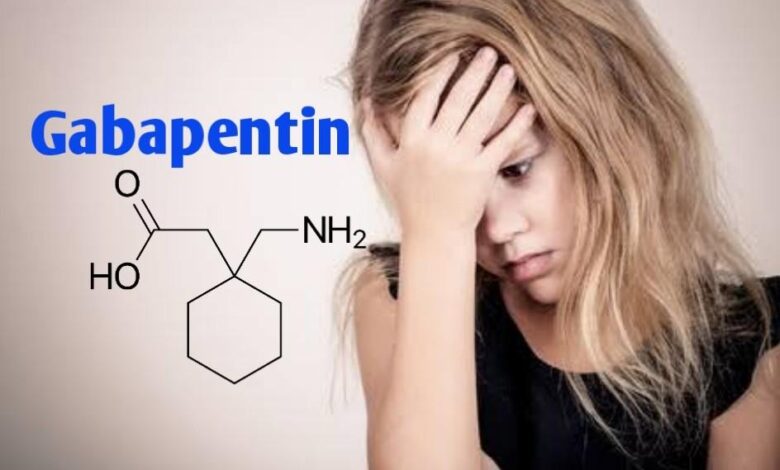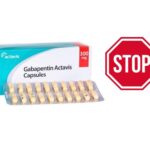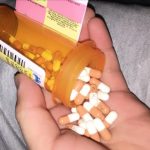Is Gabapentin Addictive?

Gabapentin (Neurontin) belongs to a class of medications called anticonvulsants. Gabapentin treats seizures by decreasing abnormal excitement in the brain. Gabapentin relieves the pain of PHN by changing the way the body senses pain. It is not known exactly how gabapentin works to treat restless legs syndrome.
Gabapentin capsules, tablets, and oral solutions are used along with other medications to help control certain types of seizures in people who have epilepsy. Gabapentin capsules, tablets, and oral solutions are also used to relieve the pain of postherpetic neuralgia (PHN; the burning, stabbing pain or aches that may last for months or years after an attack of shingles). Gabapentin extended-release tablets (Horizant) are used to treat restless legs syndrome (RLS; a condition that causes discomfort in the legs and a strong urge to move the legs, especially at night and when sitting or lying down).
However, off-label use of Gabapentin has soared, the drug is being taken by millions of patients despite little or no evidence that it can relieve their pain. Emerging reports also indicate that gabapentin is becoming dispensed broadly and sold on black markets, thereby, exposing millions to potential side effects. Meanwhile, several pharmacovigilance databases have warned for potential abuse liabilities and overdose fatalities in association with drugs like Gabapentin.
How widespread is gabapentin abuse?
Gabapentin misuse and diversion was first reported in 1997. Since that time, concern over the abuse potential of gabapentin has increased, but the drug remains federally nonscheduled.
Several Board of Pharmacy has begun reporting sales of gabapentin prescriptions in its regular monitoring of controlled substances. One study found that of the 503 participants reporting illegal drug use, 15% reported using Gabapentin in addition to other drugs to get high in the previous 6 months. Another study, working with a sample of participants meant to represent the national population, found almost a quarter of patients with co-prescriptions of Opioids and Gabapentin were getting more than 3 times their prescribed amount to supply their addiction.
Recently, the Ohio Substance Abuse Monitoring Network issued an alert regarding increasing misuse across the state.
How gabapentin works
The exact mechanisms through which gabapentin exerts its analgesic and antiepileptic actions are unknown, however, according to the information from the FDA-approved label for gabapentin drug product, gabapentin has no effect on GABA binding, uptake, or degradation. In-vitro studies have shown gabapentin binds to auxiliary α2-δ subunits of voltage-gated Ca2+ channels on neurons thereby resulting in a decrease in neuronal excitability. At clinically therapeutic doses (900-3600 mg/day), gabapentin does not bind to GABAA or GABAB receptors, nor does it bind to benzodiazepine sites.
How should gabapentin be used?
Gabapentin comes as a capsule, a tablet, an extended-release (long-acting) tablet, and an oral solution (liquid) to take by mouth. Gabapentin capsules, tablets, and oral solution are usually taken with a full glass of water (8 ounces [240 milliliters]), with or without food, three times a day.
These medications should be taken at evenly spaced times throughout the day and night; no more than 12 hours should pass between doses. The extended-release tablet (Horizant) is taken with food once daily at about 5 PM. Follow the directions on your prescription label carefully, and ask your doctor or pharmacist to explain any part you do not understand. Take gabapentin exactly as directed. Do not take more or less of it or take it more often than prescribed by your doctor.
Gabapentin extended-release tablets cannot be substituted for another type of gabapentin product. Be sure that you receive only the type of gabapentin that was prescribed by your doctor. Ask your pharmacist if you have any questions about the type of gabapentin you were given.
Is Gabapentin a controlled substance?
No, gabapentin is not classified as a controlled substance even though it closely resembles pregabalin, a schedule V drug under the Controlled Substances Act in its chemical structure and pharmacological activity.
However, because of the increasing rate of abuse, states are now taking action to track gabapentin use through prescription monitoring programs, and some states have reclassified it as a Schedule V controlled substance.
Is Gabapentin Addictive?
Yes, studies have shown that gabapentin can be addictive but far less addictive when compared to traditional psychoactive substances and pregabalin in terms of the magnitude of behavioral dependence symptoms, transitions from prescription to self-administration, and the durability of the self-administrations.
Studies have also shown that people with current or past substance use disorders (SUD) have an increased risk of addiction to gabapentin, especially opioid and multi-drug users.
Experts recommend that in patients with a history of SUD, gabapentin should be avoided or if indispensable, administered with caution by using strict therapeutic and prescription monitoring.
Recent evidence suggests that the use of gabapentin concurrently with opioids increases the risk for adverse medical events and fatal overdoses. For example, an analysis of regional poison control center data found that exposures involving gabapentin co-ingested with other drugs resulted in a greater rate of moderate to major medical events compared with gabapentin-only exposures.
What happens when you suddenly stop taking gabapentin?
If you are taking gabapentin at a normal dose prescribed by your doctor and you don’t have a history of substance abuse, you are less likely to have withdrawal symptoms when you stop taking it.
Higher doses and a history of substance problems pose more risk for abuse. You can start to build up a tolerance to the drug, and you may need to take even more of it to get the desired effect. This is called physical dependence.
Your brain cells (neurons) become dependent on a high dose of the drug for normal functioning. When the drug is stopped, your brain becomes temporarily disorganized. If you start to feel that you need more of the drug to function, stopping suddenly is more likely to lead to withdrawal symptoms.
Withdrawal symptoms may start within 12 hours or take up to 7 days to begin after stopping suddenly. Symptoms commonly include:
• Restlessness (agitation)
• Disorientation
• Confusion
Various case reports describe these other symptoms of gabapentin withdrawal:
• Headache
• Body/stomach pain
• Anxiety
• Heart palpitations
• Sweating
• Muscle twitching
• Light sensitivity
• Restless limb movements
• Nervousness
How long does gabapentin withdrawal last?
Studies have shown that gabapentin withdrawal can last for up to 5 days or longer, but the duration has not been well established in human studies. The symptoms and how long they last depend on how much of the drug you are taking and for how long you’ve been taking it. Gabapentin withdrawal is not a common problem unless you are abusing the drug.
What is the treatment for gabapentin withdrawal?
There are no approved medications to treat gabapentin withdrawal. The only reliable treatment is to slowly taper the drug under the supervision of your doctor, usually a substance abuse specialist. Sometimes gabapentin is restarted to ease withdrawal symptoms before tapering off.
There is no evidence to show that other drugs or supplements — such as magnesium or CBD oil — are helpful in treating withdrawal symptoms.
How can I avoid gabapentin withdrawal?
The best way to avoid gabapentin withdrawal is to only take the drug in the dose prescribed by your doctor for its approved uses.
Gabapentin is a prescription medication approved to treat certain types of seizures and nerve pain that follows a herpes infection (postherpetic neuralgia). A long-acting form is used to treat restless legs syndrome. The most common brand name is Neurontin.
Gabapentin is also prescribed and used for unapproved reasons. These are called off-label uses. Off-label uses for gabapentin include:
• Substance abuse treatment
• Migraine headaches
• Fibromyalgia
• Mental health disorders
• Insomnia
People with a history of drug or alcohol abuse may be at increased risk for:
• Tolerance
• Self-dose escalation
• Drug-seeking behavior
• Withdrawal symptoms
You can find useful resources on How to Stop Taking Gabapentin Safely





